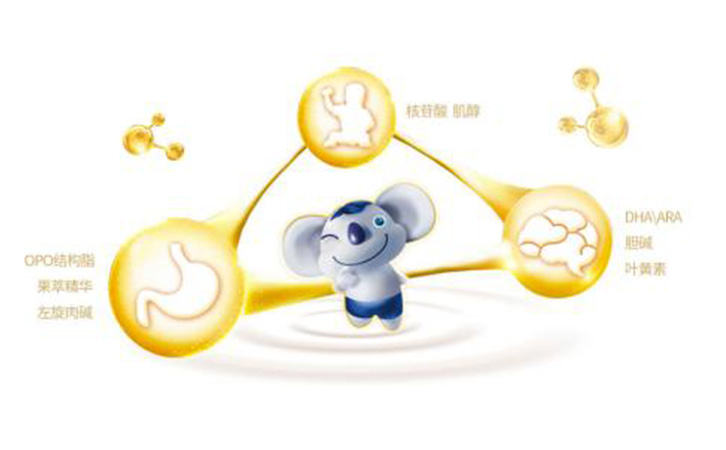MOMMY CLUB
HIGH-END INFANT FORMULA
ANUTRIC
What are the effects of L-carnitine on babies?
What is L-carnitine?
L-carnitine, also known as L-carnitine or transliterated carnitine, is an amino acid that promotes the conversion of fat into energy. Red meat is the main source of L-carnitine and has no toxic side effects on human body. L-carnitine is an essential nutrient for conditioned infants.
Why do infant milk powder add L-carnitine?
The main energy supply of newborn infants comes from fat in milk, so the content of L-carnitine in infant milk powder is very important for infants, especially premature infants.

Both breast milk and milk contain L-carnitine. Milk protein-based formula infant milk powder usually does not lack L-carnitine too much. It is also an optional ingredient in the national standard. In order to be more conducive to infant fat metabolism, many infant milk powder also adds L-carnitine.
What effect does L-carnitine have on babies?
1. Energy Conversion
The main physiological function of L-carnitine is to promote the conversion of fat into energy. Taking L-carnitine can reduce body fat and weight without reducing water and muscle. L-carnitine is not a weight-loss drug. Its main function is to transport fat to mitochondria for combustion, and it is a carrier enzyme.
2. Energy metabolism
L-carnitine, a conditional essential nutrient for infants, plays an important role in the metabolism of fat as an energy source in infants.
3. Energy synthesis
The synthesis of L-carnitine in infants is weak. Only 12% of adults, especially premature infants, must be supplemented with exogenous L-carnitine in order to meet the needs of the body.
Levocarbine usage
At present, more than 20 countries allow L-carnitine to be added to infant milk powder as a food additive, and most large brands of infant milk powder have added this ingredient all the time. It is recommended that the daily intake should not exceed 50 mg.
The content of L-carnitine in every kilogram of infant milk powder should not exceed 150 mg, that is, the content of L-carnitine in every 100 grams of infant milk powder should not exceed 15 mg.
Development of L-carnitine
1905: Russian scientists extract and separate L-Carnitine from muscle.
1940: Frankle discovered that L-Carnitine is a human essential substance and named it "vitamin BT".
1959: Fritz confirms that L-Carnitine is an essential carrier in the process of lipid oxidation and provides energy for the body, thus confirming that L-Carnitine is an essential substance for the human body.
1980: The Food and Drug Administration (FDA) Manual lists L-Carnitine as a natural substance.
At the International Conference on Nutrition held in Chicago in 1985, vitamin BT was designated as "multifunctional nutrition".
1990: L-Carnitine is included in the 22nd edition of the American Pharmacopoeia.
1991: Swiss and American Patent Number 50730373, date: Dec. 17. 1991.
1993: Recognized by the Food and Drug Administration (FDA) and the World Health Organization (WHO), the U.S. Committee of Experts confirmed the safety of L-Carnitine. The German Ministry of Health stipulated that there was no upper limit for L-carnitine use.
1994: The 23rd edition of the American Pharmacopoeia contains L-Carnitine raw materials, and adds tablets and oral liquids.
In 1995, the International Association for the Promotion of Obesity Health awarded L-carnitine and COLD&HOT as annual contributions to health research.
In 1996, China's 16th National Technical Committee for Standardization of Food Additives permitted the use of L-carnitine in beverages, dairy drinks, biscuits, solid drinks and milk powder.
Document No. 13 of Ministry of Health Science and Education in 1997 identified L-carnitine as a safe nutrient fortifier.









